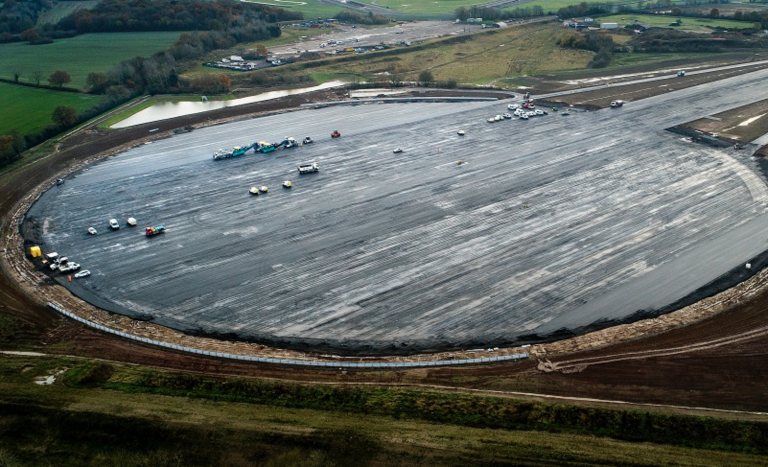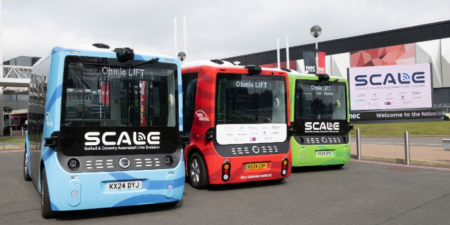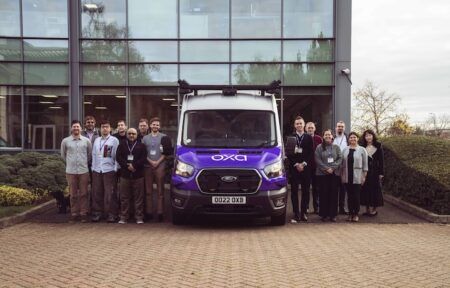Self-driving vehicles are a significant step closer to becoming a reality on public roads with the construction of a revolutionary new ecosystem nearing completion in the UK’s Midlands.
Set to provide the UK with the most complete environment for the acceleration of future mobility, the new, globally-unique autonomous vehicle development centre – known as Assured CAV – has been developed by leaders in automotive engineering, HORIBA MIRA. It has been specifically designed to enable the automotive industry, policy makers and government to develop autonomous vehicle technology, ensuring it is robust to the wide range of eventualities seen on public roads, before being released to consumers.
Far more than a location for vehicle testing, Assured CAV is a lighthouse in the CAV industry; a location where organisations can lead in both the development and verification of self-driving technologies, but also where the learning can be applied to influence future legislation, policy and insurance, to ensure the future of autonomous vehicles will improve lives.
Assured CAV’s combination of facilities and capabilities are set to open in March 2021 and is a culmination of £100m investment made over recent years – it includes:
- A high-speed facility enabling autonomous vehicles to be tested at the limit of controllability – specifically designed for performing scenario-based testing, the facility will enable the testing of driving scenarios such as traffic merging and lane keep assist to be conducted to international regulatory protocols
- Urban environments where vehicles will experience pedestrians and cyclists, complex junctions and on-street parking
- A purpose-built multi-storey car park which will support the development of automated valet parking – car passengers will exit their vehicle, for it to then find its own parking space, returning to the passenger at a designated waiting area when requested
- An ultrafast 5G mobile private network supported by Vodafone, which will allow vehicle-to-vehicle and vehicle-to-infrastructure communications to be verified, as well as testing infotainment and cybersecurity
- An extensive portfolio of digital replicas where simulated testing can be scaled, reinforcing physical testing. It can also be accessed virtually so technology can be tested from anywhere in the world
- An on-site network of campus roads complemented by a 300km network of adjacent CAV-enabled public roads equipped with a range of intelligent transport systems enabling real-world road trials
- Full complement of advanced robotic targets and supporting junction layouts adhering to relevant protocols for a full suite of Advanced Driver Assistance Systems (ADAS) testing
Assured CAV supports the government’s industrial strategy to establish the UK as a leader in the development and commercialisation of CAVs, which, according to The Society of Motor Manufacturers and Traders (SMMT), could yield the UK economy £62 billion per year by 2030.The world-class hub will also strengthen the case for investing in the UK automotive industry at a time when the sector faces intense pressure from the COVID-19 pandemic and Brexit uncertainty.
Declan Allen, Managing Director at HORIBA MIRA said: “We’ve been on a journey to create ASSURED CAV; it represents many years of intense research and investment to bring together one of the most comprehensive CAV validation ecosystems in the world. At a time when the automotive industry is facing significant headwinds, we’ve been steadfast in our approach to delivering this investment and we’re extremely proud to provide an ecosystem which will allow the automotive industry, as well as complementary industries, to develop and prove their self-driving technology. This is a unique opportunity for companies to accelerate their activities to lead the industry – it will allow companies to bring forward their activities in this sector in an efficient and optimised manner, enabling them to solve the real-world problems of integrating their automated products into the public roads, whilst also importantly achieving consumer acceptance.”





